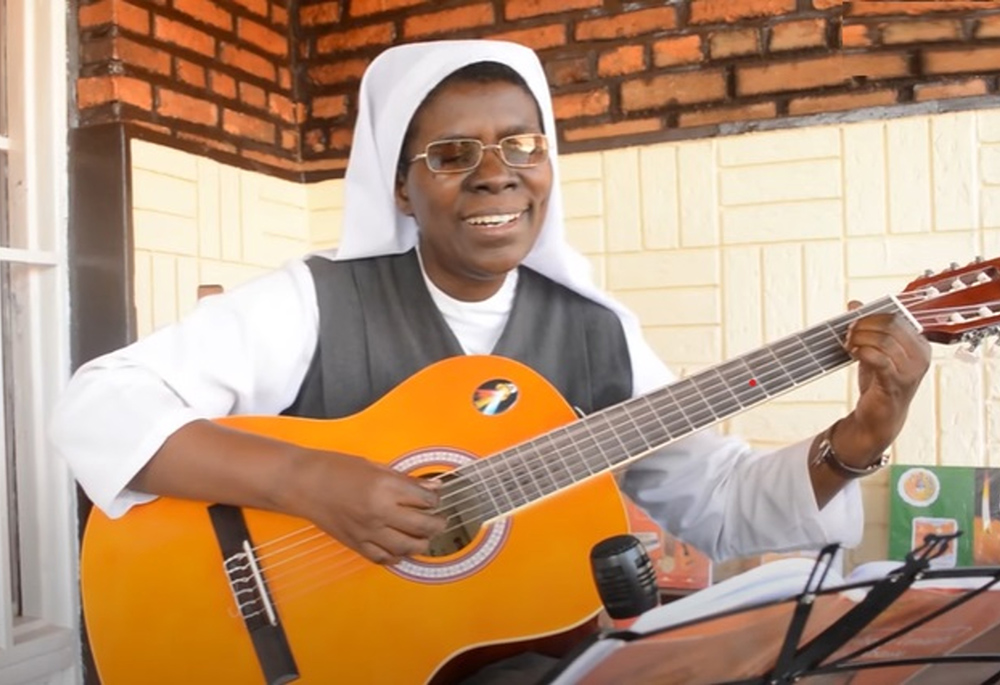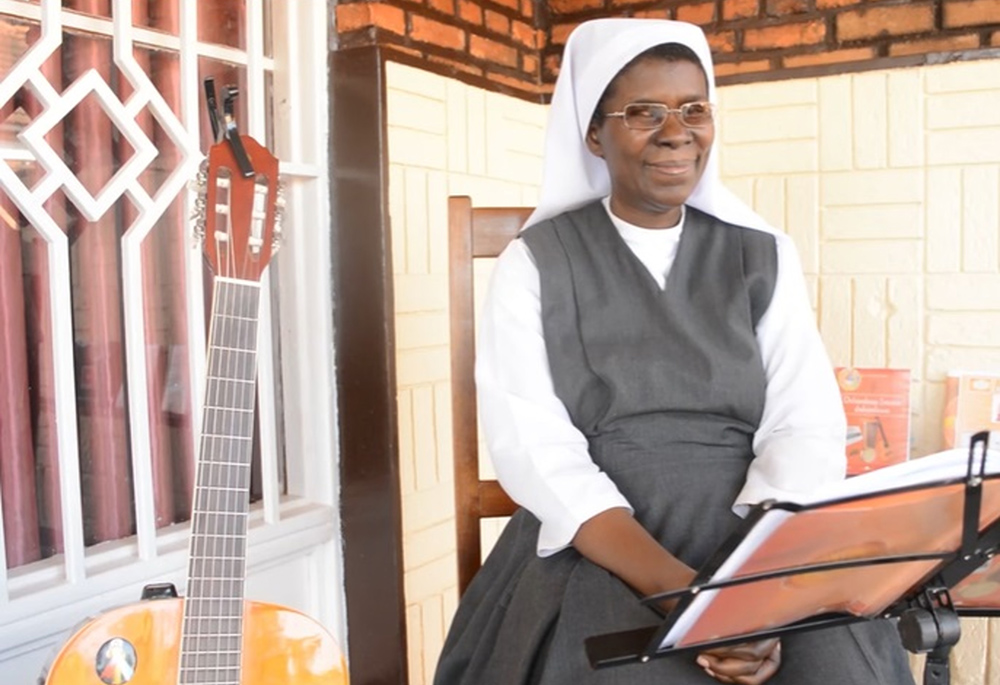
Sr. Fébronie Kamana of the Oblates of the Holy Spirit in Rwanda started as a music learner because she had never had any formal musical education. (Aimable Twahirwa)
As a nun on the Rwanda music scene who has composed popular praise and worship songs, Sr. Fébronie Kamana of the Oblates of the Holy Spirit in Rwanda is a talent to keep tabs on.
In one of her famous praise songs, titled "It's all for those who love God" in vernacular Kinyarwanda language, Kamana presents a Gospel-centered message intended to reach more youth than ever before with catechism songs. The song has hundreds of thousands of views on YouTube.
Global Sisters Report: How did music come into your life as a nun?
Kamana: At the very beginning, in 2006, I started as a learner because I never had any formal musical education, except for a few piano and guitar lessons that didn't end well. I had an ear for music but was not a good piano or guitar player. My first song was horrible, and now with experience, I try to adapt the worship songs that the youth of today are looking for that are mostly relatable and that align with the music they listen to daily.
Elena Guerra, the founder of the Oblates of the Holy Spirit you belong to, is known to have dedicated her life to education. What are the benefits of your music talents in education for youth?
Throughout my call to religious life, I started recognizing that musical inspiration is a solution to a problem. Music can be a powerful tool for education, especially for youth. As a songwriter, most of my compositions include fast and upbeat praise and worship songs for youth. I have to make sure they are associated with relevant lyrics, a catchy melody and an upbeat tempo because youth tend to respond well to high-energy songs.
Most of these worship songs give the youth a sense of purpose and meaning in their lives. This leads to a stronger sense of spirituality in education, which not only causes the understanding of educational content but also reinforces analytical thinking among learners.

Sr. Fébronie Kamana is convinced that music can be a powerful tool for education, especially for youth. (Aimable Twahirwa)
Can you provide specific examples of how the intersection of music, education and religion can be harmonious as far as the missionary spirit of the Oblates of the Holy Spirit congregation is concerned?
We already have many schools established in Rwanda named after Sr. Elena Guerra, the founder of our congregation. We believe that we have received from God the task and the gift to place ourselves totally at the service of the mission, bringing together education of youth, catechetical and pastoral activities.
As part of our spiritual journey, we provide youth with a safe, stimulating and healthy environment in which they can attain their full potential. This way of transferring our spiritual concepts through teaching and worship songs can be a great motivation for students and youth to take appropriate action.
Advertisement
In our traditional music industry, we see few female guitarists. How do you combine music and the nun's life with religious services to challenge stereotypes?
I am engaging youth through my worship songs. This connection between music is so important to me and will remain so. I had a hand in writing at least 30 famous worship songs most of the parishioners across Rwanda are familiar with and sing along during service at churches.
The spiritual mission of the Oblates of the Holy Spirit congregation is using relevant catechetical resources and helping people prepare to receive God's grace by learning to appreciate the music of liturgy and to pray with it.
Our congregation's missionary mandate is ultimately grounded in enabling people, especially youth, to integrate Christian faith into their daily lives. Worship music is such an important part of being Catholic and also an important part of learning.
As a songwriter, I sometimes hire a volunteer musician to put chords to my song. Sometimes, the piano works better, and sometimes guitar, and I have to play it myself.







